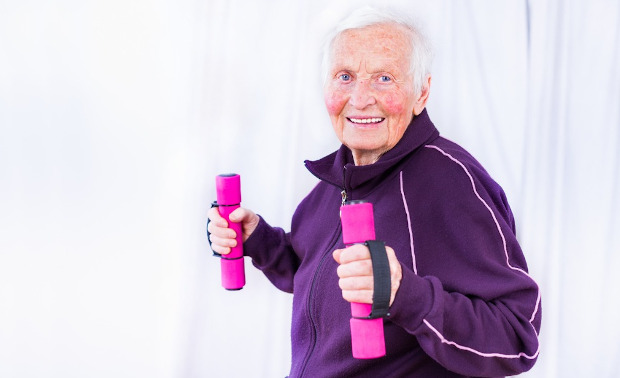Older adults with higher physical activity and lower sitting time have better overall physical and mental health, according to a new American Cancer Society study led by Erika Rees-Punia , PhD, MPH, our resident exercise science expert and cancer survivorship researcher.
, PhD, MPH, our resident exercise science expert and cancer survivorship researcher.
The study, appearing in the journal CANCER, suggests that higher amounts of regular moderate- to vigorous-intensity physical activity (MVPA) and lower duration of sedentary time is associated with higher global mental and physical health for older cancer survivors and older adults, in general.
With a rapidly aging population and nearly 16.9 million cancer survivors in the U.S. today, there is a need to identify strategies associated with healthy aging and improving quality of life for aging cancer survivors.
ACS investigators analyzed self-reported aerobic and muscle-strengthening physical activities, sitting time, and mental and physical health among nearly 78,000 participants in our Cancer Prevention Study II Nutrition Cohort. Participants (with an average age of 78 years) included older cancer survivors up to 10 years post-diagnosis, and cancer-free adults.
They found that regardless of cancer history, the differences in mental and physical health between the most and least active, and the least and most sedentary, were clinically meaningful. These findings provide evidence for the importance of engaging in regular moderate- to vigorous-intensity physical activity and decreasing sitting time as a reasonable non-pharmacologic strategy to improve quality of life in older men and women, with or without a prior cancer diagnosis. In fact, the recently published ACS physical activity guidelines recommend that adults get 150-300 minutes of moderate-intensity activity or 75-150 minutes of vigorous-intensity activity through the week, and to limit sedentary behaviors such as screen-based entertainment.
“The findings reinforce the importance of moving more and sitting less for both physical and mental health, no matter your age or history of cancer,” Erika said. “This is especially relevant now as so many of us, particularly cancer survivors, may be staying home to avoid COVID-19 exposure, and may be feeling a little isolated or down. A simple walk or other physical activity that you enjoy may be good for your mind and body.”
*Shared from MySocietySource.

No comments:
Post a Comment